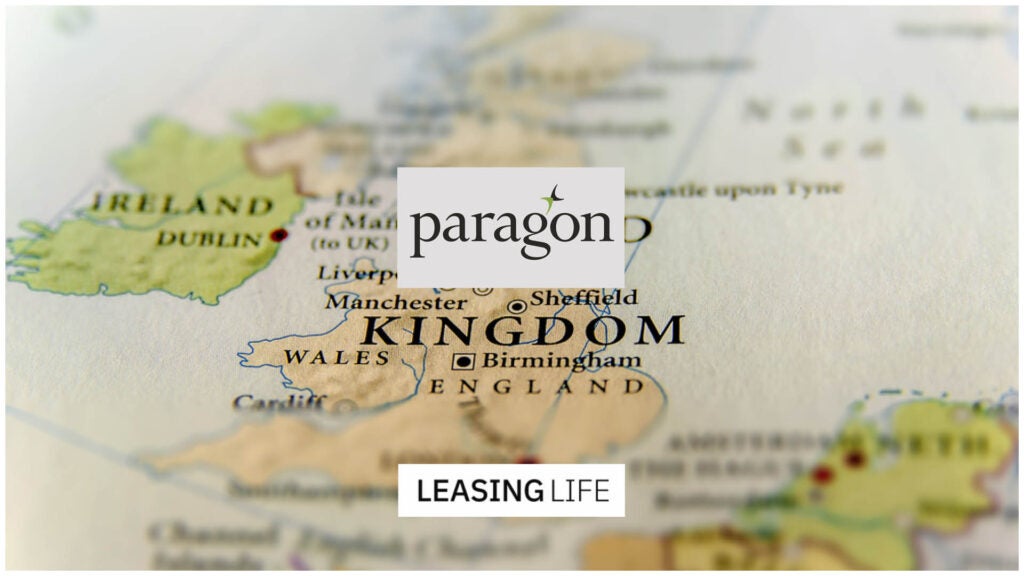A case similar to the
Lifestyle and Global Telecoms controversies has emerged in
Austria. Leasfinanz, BAWAG PSK Leasing and Raiffeisen Leasing
leased the assets, while scores of disgruntled doctors were the
victims. Jason T Hesse reports.
When doctors were approached in early 2008 and asked to work on a
‘Health Hotline’ from which patients could get a second medical
opinion, most thought that it was a good idea.
The doctors were offered an honorarium of up
to €840 per month to make themselves available for four hours every
month and answer queries by phone and email.
In January 2008, MedicInfoCenter GmbH (MIC),
the company behind the hotline that went bust in 2008, approached
more than 100 doctors to entice them into signing up to the
service.
For the hotline to work, however, doctors were
told they needed to acquire a specialised phone system, computer
and software, and were referred to three lessors: Leasfinanz, a
subsidiary of UniCredit; BAWAG PSK Leasing; and Raiffeisen
Leasing.
The doctors’ cost of leasing the phone
systems, which, in turn, the lessors had to buy from Tecomedica,
also worked out at €840 per month, and thus would be covered by the
honorarium they were due to receive.
How well do you really know your competitors?
Access the most comprehensive Company Profiles on the market, powered by GlobalData. Save hours of research. Gain competitive edge.

Thank you!
Your download email will arrive shortly
Not ready to buy yet? Download a free sample
We are confident about the unique quality of our Company Profiles. However, we want you to make the most beneficial decision for your business, so we offer a free sample that you can download by submitting the below form
By GlobalDataDoctors who signed up were paid the €840 by
MIC for the first few months, but these payments very soon became
sporadic or, in some cases, stopped altogether – leaving the
physicians in a difficult position.
Although they were no longer being paid by
MIC, they were still liable for their monthly lease instalments,
having signed separate leasing agreements with the lessors.
The result was that the doctors were left with
expensive leases for equipment that they did not need or, indeed,
want. As a result, many have stopped paying their lease
instalments.
A number of the doctors allege some of the
lessors involved had knowledge of problems occurring in the
agreements between MIC and the doctors.
However, all three lessors deny any link with
either MIC or Tecomedica’s offering.
‘At no time involved’
For example, in a letter to doctors sent on 22
April 2009, and seen by Leasing Life, Leasfinanz stated:
“We were at no time involved in MIC or Tecomedica’s business
model.
“The design and distribution system was
outside of our sphere, and Leasfinanz functioned exclusively as a
financier for those customers who
selected Leasfinanz as lessor.
“Agreements or contracts between you and MIC
or you and Tecomedica do not, therefore, affect the existing leases
between us. These are contracts that are entirely separate from
each other.”
BAWAG, too, denies any link.
“In our files, we only have the purchase
contracts for the Tecom equipment and the leasing contracts with
the doctors,” said Martin Binder, head of legal at BAWAG PSK
Leasing.
“At the time, we were not aware there was a
third party, MIC, involved.”
BAWAG has confirmed it stopped financing the
products in spring 2007 because of doctors’ complaints.
But one specialist surgeon from Vienna, who
asked to remain anonymous, claimed one of the other lessors,
Leasfinanz, continued to sign leasing agreements for longer.
“I now know that, despite several doctors
approaching Leasfinanz to say MIC was not paying their rates as
promised, it continued to do leasing agreements for this
equipment,” he said.
Leasfinanz and UniCredit Leasing did not
respond to calls for comments.
Binder strongly denied any links with MIC.
“From our point of view, the clients chose the
product, called ‘Praxis Manager’, as well as the supplier, Tecom,
and also the way of financing it, which was done through leasing.
There was no connection between our leasing contract and the
contract between the doctors and the third party, MIC, the call
centre.”
Another debate surrounding the alleged scam is
whether the cost of the equipment was inflated.
Equipment worth less
With doctors paying €840 per month in
four-year leasing agreements, the total contract works out at more
than €40,000. Doctors now claim that the equipment is worth far
less.
BAWAG’s Binder said it was difficult to put a
price on the equipment.
“Some of the doctors have complained about the
market price of the product,” he said.
“One of the problems is that it is difficult
to quantify the exact value of the solution, as around 20 percent
of the solution is hardware and the rest is software.
“Valuation experts, including court experts,
have not yet come to a clear decision on this, as some have valued
the equipment at €5,000 and others at €25,000. So we await the
court’s decision,” he added.
There is also the philosophical debate over
how a market value is established, Binder continued.
“Some say the equipment was the market value
because it was sold 400 times, but I don’t know. The court needs to
decide on a price for the hardware and software,” he said, adding
that BAWAG bought the equipment and software from Tecomedica for
€28,500 net.
“What we do know is that we paid Tecomedica
the full price for the equipment, so we are just not in a position
to write it off and incur the loss ourselves.”
Although the lessors are in discussions with
the non-paying doctors, it is up to the courts to decide who should
bear the loss.
Three test cases
There are currently three test cases to
establish the fair value of the equipment and whether or not there
is a link between MIC, Tecomedica and the lessors. Because of the
complexity of the claims, these cases are not expected to be
resolved anytime soon.
However, a link was recently established
between MIC and Tecomedica. It has emerged that a handful of
Tecomedica employees have also been working for MIC, presumably in
a bid to boost sales.
But, for the lessors, every month that passes
means heavier losses as the doctors continue to withhold
payments.
“These are important clients, so we need to
address these issues as soon as possible,” said Binder.
“We now await an objective opinion from the
courts, which will, hopefully, settle the problem.”
‘Health hotline’ scandal: who’s
who
MedicInfoCentre GmbH
(MIC)
• Call-centre that approached the doctors
and offered them up to €840 per month to answer calls and emails
for four hours every month.
• Worked with Merkur to offer the solution
to patients.
• Originally paid the doctors their fees,
but quickly stopped.
• Went out of business in late 2008.
• It is understood MIC made its profit from
commission fees.
Tecomedica GmbH
• Supplier of the equipment, which included
a phone system, a computer and the software.
• The lessor had worked with the company for
several years, but has now stopped.
• Formerly known as Tecom Gmbh.
Merkur
• Insurance company that worked with
MIC.
• Stopped the agreement with MIC when
problems arose.
• Still offers a ‘Health Hotline’ to
patients.
BAWAG PSK
Leasing
• Lessor.
• Stopped signing leasing deals with
Tecomedica in spring 2007.
Raiffeisen Leasing
• Lessor.
Leasfinanz
• Lessor that is part of the UniCredit
group.
A doctor’s tale: Dr Johannes Walter,
a vascular surgeon from Salzburg, provides an insider’s view of the
scandal
“About one-and-a-half years ago, a
representative from Tecomedica came into my office and told me that
they were looking for medical specialists to organise a network of
physicians to which people can call in and get medical
information.
“It sounded interesting – the deal was that I
would have to spend four hours a month being available for this
telephone service, and that I needed a special telephone for
this.
“They agreed to pay me €840 per month for my
time and my service, but I would have to lease this telephone and
computer – which would also cost €840 per month.
“So although there would not be a financial
benefit for me, there was no risk either. It sounded like a good
idea and so I agreed.
“Everything worked pretty well originally.
“I received my fees and I then paid the
leasing company. There was hardly any patient contact at all,
however – I only had one or two emails from patients to provide
medical information and no telephone calls.
“I got suspicious when their payment didn’t
come regularly anymore.
“It was terrible when, at the beginning of the
year, they stopped paying me completely and refused to return any
of my calls or emails.
“That is when I made contact with other
doctors in Austria who had exactly the same experience as mine.
“Today, many doctors have stopped their
payments to the leasing companies.
“I have been to the police to report
Tecomedica because they have not paid me for the past five months
and stopped the service, so it is now out of our hands.
“But I also stopped my payments to Leasfinanz.
Leasfinanz have said all along they knew Tecomedica and
MedicInfoCenter, and that they have always had good business
relations with them.
“The computer and telephone is just not worth
€30,000. It is probably only worth €1,000, so the leasing companies
won’t take them back. ”







